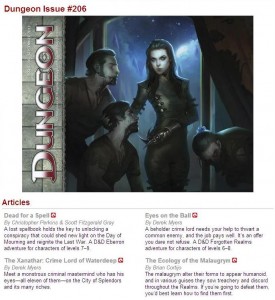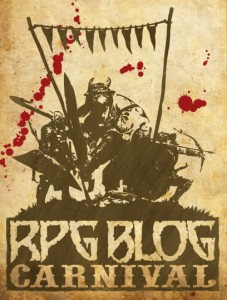While the Dungeon’s Master team enjoys some well-deserved vacation time, we’re breaking out the greatest hits and shining a spotlight on a few of our favourite articles from 2012. We’ve searched for hidden gems that our newer readers might have missed and our long-time readers will enjoy reading again. Enjoy a second look at these greatest hits from Dungeon’s Master.
Considering how common laughter is at the gaming table I’ve found that writing humourous articles is really difficult. Instead of going for outright funny ha-ha, I’ve had a lot more success writing observational pieces that demonstrate wit and focus on shared experiences most gamers will relate to and chuckle. In that vein I put together this article on the correlation between weapons and character personalities.
This is clearly a light-hearted piece that may seem a bit silly and simplistic at first glance. However, I’ll bet that by the time you get to the end you’ll agree with many of my observations and see the personality of some of your own PCs accurately paired to their weapon of choice. Think about this the next time you equip a character.
In the original article I asked our readers to add to my list of weapons. Here are some of their contributions. If you’ve got another one please add it to the comments below.
- Rapier – You have a piercing wit as well as the sword. You also have a flair for the dramatic. (Al)
- Flail – You enjoy making a mess of things, twisting people’s words or just tripping them up. (Eamon)
- Tome – You possess a lot of power, but that power is a heavy burden. You have difficulty relating to others because you spend so much of your time inwardly focused. (dmscorpio)
- Sling – You’re a child at heart, though maybe not so innocent. You try to get your way, and complain or lash out if you don’t. (Zeroarmada)
From March 21, 2012, Dungeon’s Master once again presents: What Your Weapon Says About Your Character.

